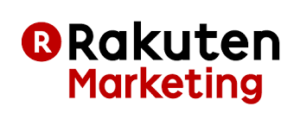Consumers Equate Ads with Fake News; Email Still Delivering Results
by Hugh Williams on 29th Jun 2017 in News

ExchangeWire Research’s weekly roundup brings you up-to-date research findings from around the world, with additional insight provided by Rebecca Muir, head of research and analysis, ExchangeWire. In this week’s edition: Consumers equate ads with fake news; Email still delivering results; and Intrusive brands vs personalised communication.
Consumers equate ads with fake news
British consumers are far more likely to associate ads with fake news when compared to their European or American counterparts, according to Rakuten Marketing.

Seven-in-ten (71%) of Brits now associate ads with fake news, as opposed to 54% of French and German respondents, and 58% of Americans. The research also puts current ad-blocking rates at 32%, while 46% proactively opt-out of ads in other ways.
Intriguingly, 43% of Americans quote themselves as having had a bad experience with an online ad, as opposed to just 25% of UK consumers. Because of a bad ad experience, 45% of consumers will abandon a site and 28% will avoid the site altogether. A quarter (26%) will clear their cookies to stop receiving ads from a brand, and 19% will avoid brands they associate with bad advertising practices.
Men are 41% more likely to use an ad blocker than women, with 16% more likely to opt out of ads and 17% more likely to clear their cookies. However, it’s not all doom and gloom: 70% of global consumers want advertisers to know advertising is OK when the ad content is useful to them and nearly a third of UK consumers (31%) actively follow an online blogger or social influencer.
Email still delivering results
Revenue contribution from email marketing is the highest ever – up 18% from 2016, to over 20% of overall revenue in 2017 – according to a new study by The Relevancy Group in collaboration with OneSpot.

Among the study's key findings is that marketers using deep personalisation can drive as much as 17% more revenue through their email programs than counterparts that do not use deep personalisation. What's more, engagement rates for marketers leveraging personalised content, and offers in their email programs, are universally higher as compared to those not using personalisation.
As compared to other industries, email drives a greater percentage of overall revenue for FMCG, professional services, and technology companies, while financial services companies also outperform the average with nearly a quarter of overall revenue directly attributed to email marketing initiatives.
While 65% of marketers said dynamic content in email marketing was their most effective approach, researchers noted that the efficacy and response is because content is highly personalised – and is not a result of the dynamic nature of the content.
Intrusive brands vs personalised communication
The majority of European consumers (53%) say smaller brands care more about their needs than larger ones, according to research commissioned by Ricoh Europe.

Only a fifth (21%) believe bigger brands are more attentive, despite those businesses typically having more resources at their disposal.
With small- and medium-sized enterprises (SMEs) representing 99% of all businesses across the continent, according to the European Commission, the research flags huge opportunity to build consumer loyalty by trading on customer service excellence. But aspiring SMEs must be wary of being overly intrusive. Three-in-five (61%) consumers say brands of all sizes should be transparent in what data they collect on them to personalise communications.
Smarter use of technology to communicate with consumers is clearly a big draw. Only a quarter (27%) of respondents disagree that the best brands, no matter their size, are those that use innovative technology with their customers. However, it seems smaller businesses have a way to go.








Follow ExchangeWire